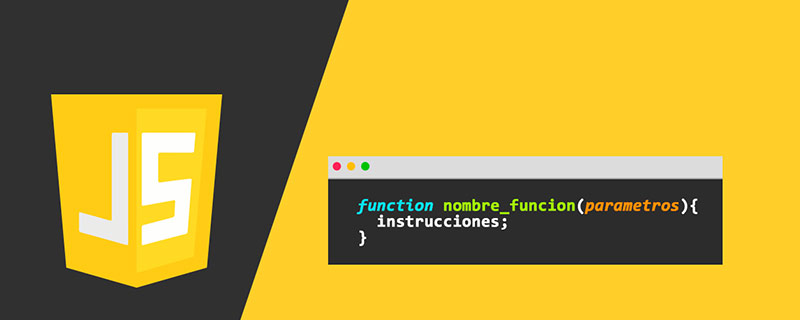This article mainly introduces the use of Node to provide static file services. It has a certain reference value. Now I share it with you. Friends in need can refer to it.
Preface
For a For web applications, it is often necessary to serve static files (CSS, JavaScript, images). This article will introduce how to make your own static file server.
Create a static file server
Each static file server has a root directory, which is the basic directory that provides file services. So we need to define a root variable on the server we are about to create, which will serve as the root directory of our static file server:
var http = require('http')
var join = require('path').join
var fs = require('fs')
var root = __dirname
__dirname is a magical variable in Node, and its value is where the file is located The path to the directory. In this example, the server will use the directory where this script is located as the root directory of the static files.
With the path of the file, the content of the file also needs to be transferred.
This can be done with fs.ReadStream, which is one of the Stream classes in Node. A successful call to fs.createReadStream() returns a new fs.ReadStream object.
The following code implements a simple but fully functional file server.
var server = http.createServer(function(req, res){
let path = join(root, req.url)
let stream = fs.createReadStream(path)
stream.on('data', function(chunk){
res.write(chunk)
})
stream.on('end', function(){
res.end()
})
})
server.listen(3000)
This file server generally works, but there are many details to consider. Next, we need to optimize data transmission and streamline the server code.
Use STREAM.PIPE() to optimize data transmission
Although the above code looks good, Node also provides a more advanced implementation mechanism: Stream.pipe(). Using this method can greatly simplify the server code. The optimized code is as follows:
var server = http.createServer(function(req, res){
let path = join(root, req.url)
let stream = fs.createReadStream(path)
stream.pipe(res)
})
server.listen(3000)
Is this way of writing simpler and clearer?
Understanding streams and pipes
Flow is a very important concept in Node. You can think of the pipes in Node as water pipes. If you want a certain source (such as a water heater) to flow out If the water flows to a destination (such as a kitchen faucet), you can add a pipe in the middle to connect them, so that the water will flow along the pipe from the source to the destination.
The same is true for the pipeline in Node, but what flows in it is not water, but data from the source (i.e. ReadableStream). The pipeline can allow them to "flow" to a certain destination (i.e. WritableStream). You can use the pipe method to connect pipes:
ReadableStream.pipe(WritableStream)
Reading a file (ReadableStream) and writing the contents to another file (WritableStream) uses a pipe:
let readStream = fs.createReadStream('./original.txt')
let writeStream = fs.createWriteStream('./copy.txt')
readStream.pipe(writeStream)
All ReadableStreams can access any WritableStream. For example, the HTTP request (req) object
is a ReadableStream, and you can let the contents flow to a file:
req.pipe(fs.createWriteStream('./req-body.txt'))
Run
Now let's run the above code, we are at the root Place a picture in the directory, such as peiqi.jpg.
Enter http://127.0.0.1:3000/peiqi.jpg in the browser, and you will find that the cute peiqi has appeared in front of you. peiqi.jpg is sent from the http server to the client (browser) as the response body. 
Although it has tasted success, this static file server is not complete enough because it is prone to errors. Imagine that if the user accidentally enters a resource that does not exist, such as abc.html, the server will crash immediately. So we have to add an error handling mechanism to this file server to make it robust.
Handling server errors
In Node, all classes that inherit EventEmitter may emit error events. In order to monitor errors, register an error event handler (such as the following code) on fs.ReadStream, and return response status code 500 to indicate an internal server error:
stream.on('error', function(err){
res.statusCode = 500
res.end('服务器内部错误')
})
Use fs.stat() to implement error handling
We can use fs.stat() to obtain relevant information about the file. If the file does not exist, fs.stat() will put ENOENT# in err.code. ##In response, you can then return error code 404 to indicate to the client that the file was not found. If fs.stat() returns other error codes, you can return the generic error code 500. The refactored code is as follows:
var server = http.createServer(function(req, res){
let path = join(root, req.url)
fs.stat(path, function(err, stat) {
if (err) {
if ('ENOENT' == err.code) {
res.statusCode = 404
res.end('Not Found')
} else {
res.statusCode = 500
res.end('服务器内部错误')
}
} else { // 有该文件
res.setHeader('Content-Length', stat.size)
var stream = fs.createReadStream(path)
stream.pipe(res)
stream.on('error', function(err) { // 如果读取文件出错
res.statusCode = 500
res.end('服务器内部错误')
})
}
})
})
server.listen(3000)NoteThe file server built in this section is a simplified version. If you want to put this into a production environment, you should check the validity of the input more thoroughly to prevent users from accessing parts of the content through directory traversal attacks that you did not intend to open to them. SummaryAfter reading this, I believe you are smart and have mastered how to use Node to create a static server. In the next article, I will introduce to you how to use Node to process files uploaded by users and Store in the server. The above is the entire content of this article. I hope it will be helpful to everyone's study. For more related content, please pay attention to the PHP Chinese website! Related recommendations:
Use Node to process file uploads
Interpret some of the Redux source code through ES6 writing
The above is the detailed content of Serving static files with Node. For more information, please follow other related articles on the PHP Chinese website!
 Vercel是什么?怎么部署Node服务?May 07, 2022 pm 09:34 PM
Vercel是什么?怎么部署Node服务?May 07, 2022 pm 09:34 PMVercel是什么?本篇文章带大家了解一下Vercel,并介绍一下在Vercel中部署 Node 服务的方法,希望对大家有所帮助!
 node.js gm是什么Jul 12, 2022 pm 06:28 PM
node.js gm是什么Jul 12, 2022 pm 06:28 PMgm是基于node.js的图片处理插件,它封装了图片处理工具GraphicsMagick(GM)和ImageMagick(IM),可使用spawn的方式调用。gm插件不是node默认安装的,需执行“npm install gm -S”进行安装才可使用。
 怎么使用pkg将Node.js项目打包为可执行文件?Jul 26, 2022 pm 07:33 PM
怎么使用pkg将Node.js项目打包为可执行文件?Jul 26, 2022 pm 07:33 PM如何用pkg打包nodejs可执行文件?下面本篇文章给大家介绍一下使用pkg将Node.js项目打包为可执行文件的方法,希望对大家有所帮助!
 一文解析package.json和package-lock.jsonSep 01, 2022 pm 08:02 PM
一文解析package.json和package-lock.jsonSep 01, 2022 pm 08:02 PM本篇文章带大家详解package.json和package-lock.json文件,希望对大家有所帮助!
 分享一个Nodejs web框架:FastifyAug 04, 2022 pm 09:23 PM
分享一个Nodejs web框架:FastifyAug 04, 2022 pm 09:23 PM本篇文章给大家分享一个Nodejs web框架:Fastify,简单介绍一下Fastify支持的特性、Fastify支持的插件以及Fastify的使用方法,希望对大家有所帮助!
 node爬取数据实例:聊聊怎么抓取小说章节May 02, 2022 am 10:00 AM
node爬取数据实例:聊聊怎么抓取小说章节May 02, 2022 am 10:00 AMnode怎么爬取数据?下面本篇文章给大家分享一个node爬虫实例,聊聊利用node抓取小说章节的方法,希望对大家有所帮助!
 手把手带你使用Node.js和adb开发一个手机备份小工具Apr 14, 2022 pm 09:06 PM
手把手带你使用Node.js和adb开发一个手机备份小工具Apr 14, 2022 pm 09:06 PM本篇文章给大家分享一个Node实战,介绍一下使用Node.js和adb怎么开发一个手机备份小工具,希望对大家有所帮助!
 图文详解node.js如何构建web服务器Aug 08, 2022 am 10:27 AM
图文详解node.js如何构建web服务器Aug 08, 2022 am 10:27 AM先介绍node.js的安装,再介绍使用node.js构建一个简单的web服务器,最后通过一个简单的示例,演示网页与服务器之间的数据交互的实现。


Hot AI Tools

Undresser.AI Undress
AI-powered app for creating realistic nude photos

AI Clothes Remover
Online AI tool for removing clothes from photos.

Undress AI Tool
Undress images for free

Clothoff.io
AI clothes remover

AI Hentai Generator
Generate AI Hentai for free.

Hot Article

Hot Tools

Dreamweaver Mac version
Visual web development tools

Atom editor mac version download
The most popular open source editor

WebStorm Mac version
Useful JavaScript development tools

VSCode Windows 64-bit Download
A free and powerful IDE editor launched by Microsoft

Notepad++7.3.1
Easy-to-use and free code editor







